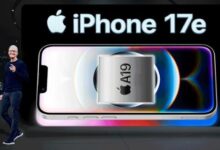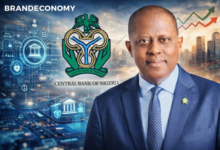NCC: Glo, 9Mobile set to list on Stock Exchange
 The Nigerian Communications Commissions (NCC) has revealed that Globacom, 9Mobile and Bharti Airtel are set to follow the footsteps of MTN Nigeria by listing their company on the Nigerian Stock Exchange.
The Nigerian Communications Commissions (NCC) has revealed that Globacom, 9Mobile and Bharti Airtel are set to follow the footsteps of MTN Nigeria by listing their company on the Nigerian Stock Exchange.
The Executive Vice Chairman of the Commission, Umar Danbatta, dropped the hint on Monday at a meeting with ICT journalists at the Commission’s headquarters in Abuja.
Danbatta, who was represented at the event by the Executive Commissioner, Stakeholders Management at the Commission, Sunday Dare, said with the successful history of MTN on the stock exchange, it is expected that Airtel which had already announced its intention will soon be listed on the Nigerian Stock Market alongside Globacom and 9Mobile.
Recall that MTN had on 7th May 2019 filed an application for public listing with the Securities and Exchange Commission and the Nigerian Stock Exchange. Bharti Airtel also on 21st March 2019 opened discussion on NSE listing, remaining Globalcom and 9Mobile.
The NCC boss said MTN listing on the NSE, offers Nigerians the opportunity to invest in one of the telecom operators in the country and explained that though the Commission was part of the negotiation before the enlistment, it is not part of the commercial arrangement.
READ ALSO: Full report of commission that accused Emir Sanusi of fraud
On why it is taking the country longer to restore landline, he described landline as an integral part of national development and security infrastructure. He pointed out that though, the country needed landline back, it will require federal might and political will of the government to bring it back.
On why is NCC so fixated more on Mobile Broadband than fixed broadband, he explained that the National Broadband Plan has both mobile and fixed components which NCC is exerting action in both directions.
‘‘First, some people who should know better are making it seem like a direct policy decision to neglect fixed broadband. This is unfair and untrue. It is either based on ignorance or mischief. The fact is that the National Broadband Plan has both mobile and fixed components, and NCC is exerting action in both directions. Fixed broadband requires you to lay cables. To do that, you need Right of Way Permits, which are controlled by State Governments.
‘‘For many years, the industry has been battling with the issue of inordinately high charges for RoW, long delays in granting permits, and destruction of fibre cables during road constructions, incessant stop work orders, etc. etc. a former Minister once said that over 50% of the costs of fibre deployments go to paying taxes and charges. If anything, the situation is getting worse. With this kind of environment, the private sector is not incentivized to invest.’’
‘‘NCC did not just sit back. Apart from constantly engaging with State Governors through the NEC, the Governors Forum, etc, we have also stepped in directly by licensing InfraCos to provide fibre bandwidth on an open-access base. We are providing them we an output subsidy to mitigate their costs. We expect this to start bearing fruit shortly, but the major thing is the support of the state governors.’’
He added that the Commission is actively pursuing the critical Infrastructure Protection bill with the National Assembly to remove barriers to the deployment of fixed infrastructure, which he expressed hope would be passed soon.
On the ongoing harmonization of identity registration, the EVC said a working group comprising NIMC, NCC and other accredited agencies of government are currently auditing and working in parallel lines to harmonize the National ID database with the SIM Registration Database.
When completed, he said citizens in the near future will be able to register their sim by simply showing their NIN number, and vice versa. ‘‘This means that the SIM Registration and NIN process will be collapsed and conjoined. This requires clearing a number of regulatory, technical and other hurdles, but we are well on the way.’’
According to him, the primary objective is to ensure that we have a credible national database which security operations and other national inclusiveness programmes can key into as is done in other countries, adding that best practices is being deployed to make it a success.
On 5G readiness in Nigeria, he reiterated the country’s readiness in adopting the 5G network, saying that the NCC apart from holding a stakeholders’ forum to come up with a roadmap on 5G, he said the Commission had opened up consultations on spectrum for drones and is proactively leading discussions on the deployment of new technologies.
‘‘NCC did not just sit back. Apart from constantly engaging with State Governors through the NEC, the Governors Forum, we have also stepped in directly by licensing InfraCos to provide fibre bandwidth on an open-access base. We are providing them we an output subsidy to mitigate their costs.
‘‘We expect this to start bearing fruit shortly, but the major thing is the support of the state governors. That is critical. Nigeria is a Federation of 36 States; we cannot dictate what to charge for RoW to them, we can only persuade them and hope they see the superior merit and long-term benefits of making their States receptive to telecoms infrastructure.’’
Samson Oyedeyi








